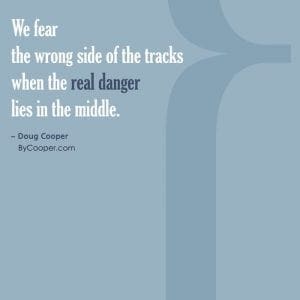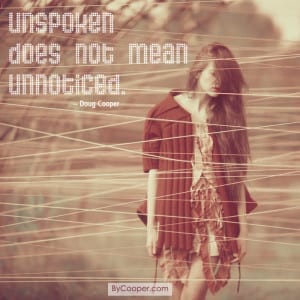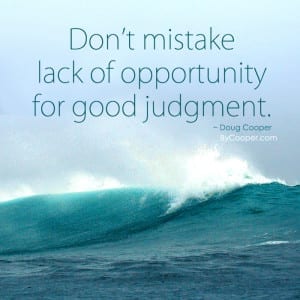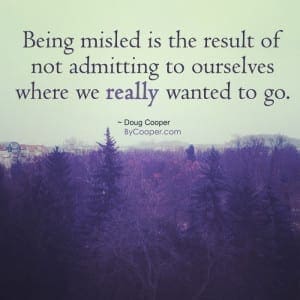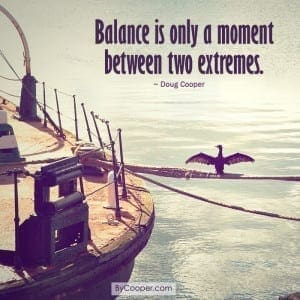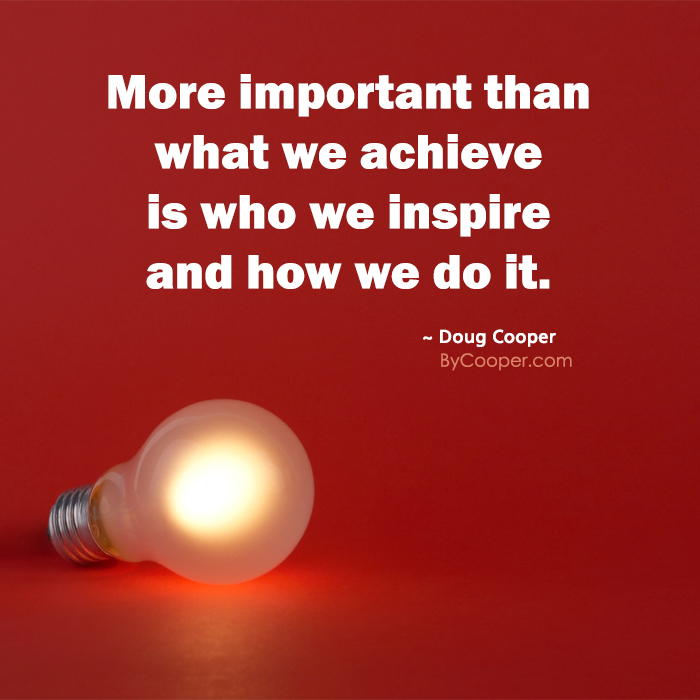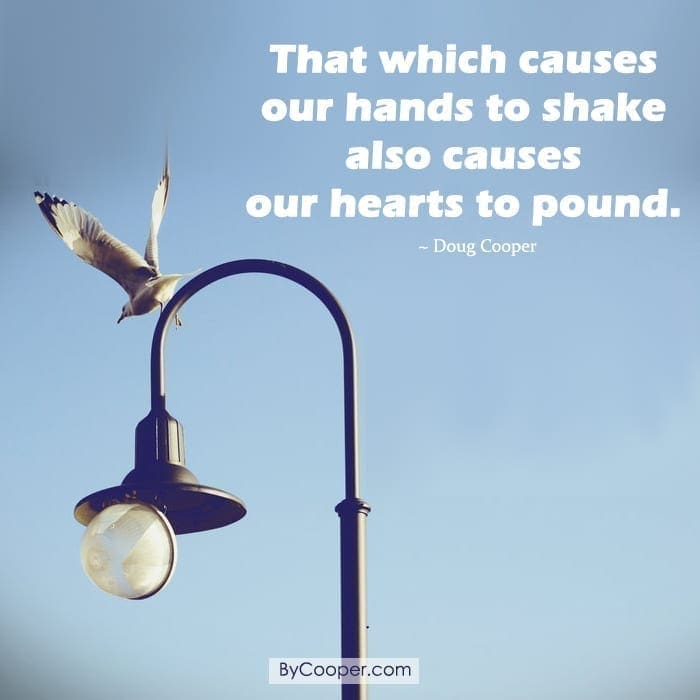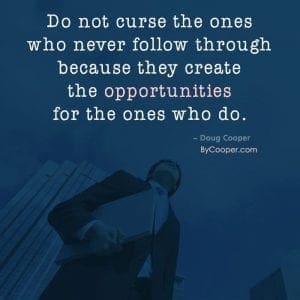
It’s so easy to focus on the people who let us down. After all, there are a lot of them out there — the ones always making promises but never following through. Dealing with continual and abundant frustration can cause us to change the way we view and interact with everyone. We spend so much time crafting our approach, believing we can find a way to manage them into better performance. Or even worse, we automatically condition ourselves to expect the worst to counteract the certain disappointment to follow. But others’ failures to respect commitments are not obstacles. They are chances for everyone else.

Fear is a powerful motivator. “Stay away from this” and “Watch out for that” are both warnings we hear and use to caution others. Although well-intending, this barrage of threats can also paralyze. We become hesitant, full of angst and doubt of what might happen. Of course there will always be risk in changing our positions or taking a stand opposite of our peers or rivals. Keeping ourselves in the middle may seem like the safe move for long term longevity. The true peril, however, lies not in the actions we take, but in the choices we never make.

Comments from others shape most of our actions. We learn from an early age what is acceptable and what is not through verbal feedback. Sometimes we disregard and do what we feel anyway, but usually we factor in the potential responses from others before choosing our course and evaluate the reactions afterward. No feedback equates to approval, indifference, or unawareness. But this is a dangerous assumption. Whether consciously or unconsciously, all that we do is recorded by those around us. Each action is a cumulative drop in a cup. It may not cause a spill, but that doesn’t mean it wasn’t observed.

The new year is upon us. We’ve made our resolutions, and so far, so good. Those self-destructive decisions are behind us…so 2015. We feel a sense of growth and achievement. Maybe, just maybe, we have finally conquered the demons that were seemingly on a long-term lease with the option to buy inside us. But before we decide what we’ll repurpose the available space for, we must determine if it is truly vacant. Perhaps in our quest for self-improvement, we have merely removed ourselves from the temptation. While this is definitely a positive step, it doesn’t really evict the demons.
 We all make mistakes and lament our choices, feeling pulled in this direction or roped into that situation. We convince ourselves that if we eliminate the bad influences, the poor decisions will go away. But the problems actually exist within us and are attracting other people and situations to us until we finally make the right decisions. It may not always be a conscious choice, but we end up exactly where we need to be. If our surroundings or the results are not what we expect or want, then we probably weren’t being honest with ourselves in the first place.
We all make mistakes and lament our choices, feeling pulled in this direction or roped into that situation. We convince ourselves that if we eliminate the bad influences, the poor decisions will go away. But the problems actually exist within us and are attracting other people and situations to us until we finally make the right decisions. It may not always be a conscious choice, but we end up exactly where we need to be. If our surroundings or the results are not what we expect or want, then we probably weren’t being honest with ourselves in the first place.

We look forward to stepping out of our routines — vacations, holidays, visiting friends — but then lament the effect it has on our lives. Our patterns and habits become more about control than improving the quality of our lives. We convince ourselves we need to keep our lives in a state of equilibrium and try to create it by manipulating our surroundings. But life is organic and dynamic, and the harmony we seek is here one second and gone the next. Equanimity is an inner state. Learn to let go and appreciate balance, knowing it’s merely a moment between two extremes.
 Now through January 15th, the eBook version of Outside In is on sale for $4.99 on Amazon, Barnes & Noble, Indiebound, and Kobo.
Now through January 15th, the eBook version of Outside In is on sale for $4.99 on Amazon, Barnes & Noble, Indiebound, and Kobo.
Keep yourself or someone you love warm during the cold winter months with this sizzling, summer story set on South Bass Island.
Don’t forget to check out the deeper look blog series after you finish to delve more into the plot, setting, characters, theme, style and more.

Too often we equate our being with doing. We allow our achievements to represent who we are in the world. We use effort to connect us; the outcome to measure us. But the most beneficial result of our actions is the effect they have on others. Who we reach, how we do it, and the impact we have on those around us will tell us everything we need to know about ourselves.
We often shy away from that which frightens us. It’s natural to want safety, security, and comfort. But in doing so we often forget the link between our fear and our passion. To pursue a cherished goal and fail can be perceived as a worse outcome than not trying at all. After all if we don’t put ourselves out there than we never know if we’re good enough. But are we really safe? Are we really living our lives? What frightens us also illuminates what matters most. Learning to recognize and lean into our deepest fears will always propel us toward our dreams.



